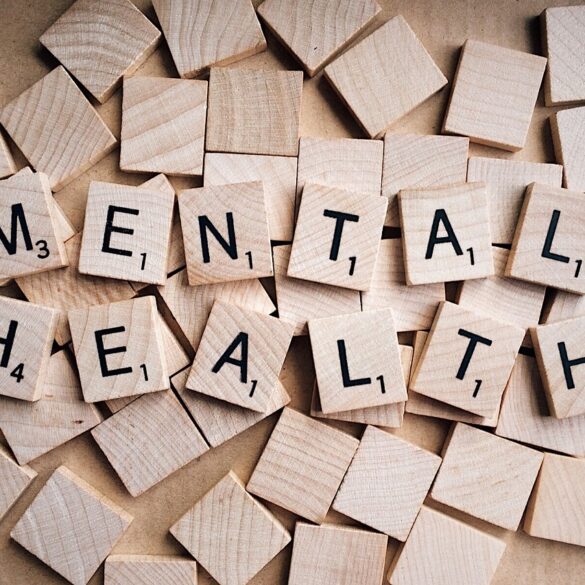Table of Contents
The Psychology behind Aggressive behavior: Causes, Consequences, and Interventions
Aggressive behavior, characterized by hostility, physical or verbal violence, and a disregard for the well-being of others, is a complex psychological phenomenon with far-reaching implications for individuals and society. Understanding the psychology behind aggressive behavior is crucial to developing effective interventions and strategies for managing and reducing aggression.
This article explores the causes, consequences, and interventions related to aggressive behavior, shedding light on the biological, psychological, and environmental factors that contribute to aggression. By delving into the various aspects of aggression, this article aims to provide valuable insights into this pervasive issue and offer potential solutions for promoting nonviolent alternatives.
1. Introduction to Aggressive Behavior
An Overview of Aggression
Aggression. The word itself conjures up images of yelling, fists flying, and general unpleasantness. But what exactly is aggression? Simply put, it refers to behavior intended to cause harm or pain to another person. It can manifest in various ways, from physical violence to verbal insults, and even in subtle forms like passive-aggressive behavior.
The Importance of Understanding Aggression
Understanding aggression is crucial for a variety of reasons. First, it helps us comprehend why some individuals exhibit aggressive behavior while others do not. It allows us to consider the factors that contribute to aggression and recognize that it is not simply a matter of "bad" people behaving badly. By understanding the causes, we can work towards prevention and intervention strategies to help manage and reduce aggressive behavior.
2. Biological and Genetic Factors Influencing Aggression
The Role of Neurotransmitters in Aggressive Behavior
Believe it or not, our brains have a say in how aggressive we are. Neurotransmitters, the chemical messengers in our brains, play a significant role in regulating our behavior, including aggression. For example, low serotonin levels have been linked to increased aggression, while an excess of certain neurotransmitters, such as dopamine, can also contribute to aggressive tendencies.
Genetic Predisposition to Aggression
As much as we may want to blame our parents for our aggressive tendencies, there is some truth to the idea that genetics play a role. Research has shown that certain genetic factors can predispose individuals to be more prone to aggression. However, it is essential to remember that genetics are just one piece of the puzzle, and environmental factors also have a significant influence on aggressive behavior.
3. Psychological Factors Contributing to Aggressive Behavior
Childhood Trauma and Aggression
Sometimes, our past experiences can shape our future behavior. Childhood trauma, whether it be physical, emotional, or sexual abuse, can have a profound impact on a person's development and increase the likelihood of aggressive behavior later in life. It is important to address and heal from these traumas to break the cycle of aggression.
Mental Health Disorders and Aggression
Mental health disorders can also contribute to aggression. Conditions such as conduct disorder, oppositional defiant disorder, and certain personality disorders are associated with an increased risk of aggressive behavior. Treating and managing these disorders through therapy and medication can help individuals regain control over their actions and reduce aggressive tendencies.
4. Social and Environmental Influences on Aggression
Social Learning Theory and Aggression
We are not born aggressive; we learn it from the world around us. Social learning theory posits that aggression can be acquired through observation and imitation. This means that exposure to violence in media or witnessing aggressive behavior in our social circles can influence our own propensity for aggression. It highlights the importance of fostering positive social environments to counteract the harmful influences.
Impact of Peer Pressure on Aggressive Behavior
Ah, the power of peer pressure. It's not just about encouraging us to dye our hair wild colors or get matching tattoos; it can also influence our aggression levels. Research has shown that individuals are more likely to engage in aggressive behavior when surrounded by peers who exhibit aggressive tendencies. The need to conform and fit in can override our better judgment, leading to regrettable actions.
Understanding the psychology behind aggressive behavior is essential for addressing this prevalent issue. By recognizing the biological, genetic, psychological, and social factors that contribute to aggression, we can work towards interventions and strategies that promote peace, empathy, and understanding. So, let's put our knowledge to good use and create a world where aggression takes a backseat to cooperation and kindness.
5. Consequences of Aggressive Behavior: Impact on Individuals and Society
Effects of Aggression on Personal Relationships
Aggressive behavior can have a profound impact on personal relationships. When someone consistently displays aggression, whether it be through physical violence or verbal attacks, it creates an environment of fear, tension, and insecurity. This can lead to strained relationships, decreased intimacy, and a breakdown of trust. Friends and loved ones may choose to distance themselves from individuals who exhibit aggressive behavior, further isolating them.
Societal Ramifications of Aggressive Behavior
Aggressive behavior doesn't just affect individuals; it also has significant societal ramifications. Increased aggression can contribute to a culture of violence and hostility, leading to higher crime rates and decreased overall well-being within a community. It can also perpetuate cycles of aggression, as children who witness aggressive behavior are more likely to imitate it in their own lives. As a society, we must recognize and address aggressive behavior to create safer and more harmonious communities.
6. Intervention Strategies for Managing and Reducing Aggression
Cognitive-Behavioral Techniques for Aggression Management
Cognitive-behavioral techniques are often used in interventions to help individuals manage and reduce aggression. These techniques focus on identifying and changing the thoughts and beliefs that contribute to aggressive behavior. By challenging negative thought patterns and replacing them with more positive and constructive ones, individuals can gain better control over their emotions and responses. Techniques such as anger management, assertiveness training, and problem-solving skills can be effective in helping individuals modify their aggressive behavior.
Anger Management Programs and Techniques
Anger management programs provide individuals with the tools and strategies necessary to regulate their anger and prevent it from escalating into aggressive behavior. These programs often include techniques such as deep breathing exercises, relaxation techniques, and cognitive restructuring. They also emphasize the importance of communication skills, teaching individuals healthier ways to express their frustrations and resolve conflicts. By learning to recognize the signs of anger and developing healthy coping mechanisms, individuals can reduce the likelihood of resorting to aggression.
7. The Role of Therapy and Counseling in Addressing Aggressive Behavior
Individual Therapy Approaches for Aggression
Therapy plays a crucial role in addressing aggressive behavior by providing individuals with a safe and supportive space to explore the underlying causes of their aggression. Therapists may use various approaches, such as psychodynamic therapy, cognitive-behavioral therapy, or dialectical behavior therapy, to help individuals gain insight into their behavior and develop healthier coping mechanisms. By addressing past traumas, unresolved conflicts, and underlying emotional issues, therapy can help individuals break free from the cycle of aggression.
Family Counseling and Aggression
Family counseling can be particularly beneficial when dealing with aggressive behavior, as it involves the entire family unit in the therapeutic process. Aggression often stems from complex family dynamics, unresolved conflicts, or poor communication patterns. Family counseling helps identify these underlying issues and promotes healthier ways of relating to one another. By fostering understanding, empathy, and effective communication within the family, aggressive behavior can be addressed and reduced. It also provides a supportive environment for family members to heal and rebuild their relationships.
8. Prevention and Education Programs: Promoting Nonviolent Alternatives
School-based Anti-Bullying Programs
Prevention and education programs are vital in promoting nonviolent alternatives and reducing aggression, especially among younger individuals. School-based anti-bullying programs teach students about empathy, respect, and conflict resolution. They provide a supportive environment where students can learn to recognize and report bullying incidents, fostering a culture of inclusivity and compassion. By addressing aggression early on and promoting positive behaviors, these programs create safer and more inclusive school environments.
Social Skills Training for Aggression Prevention
Social skills training programs aim to teach individuals the necessary skills to navigate social interactions effectively. By focusing on communication, problem-solving, and empathy, these programs equip individuals with the tools to resolve conflicts peacefully and assertively express themselves.
By enhancing social competence and emotional intelligence, individuals are less likely to resort to aggressive behavior as a means of expressing their frustrations. Social skills training can have a long-term impact on reducing aggression and promoting healthier relationships.
In conclusion, the study of aggressive behavior unveils the intricate interplay between biological, psychological, and environmental factors that contribute to its manifestation. By acknowledging and understanding these underlying causes, we can pave the way for effective interventions and strategies aimed at managing and reducing aggression.
Moreover, we must prioritize prevention and education programs, promoting nonviolent alternatives and equipping individuals with the necessary skills to navigate conflicts and express themselves assertively. With a comprehensive approach that addresses the root causes and consequences of aggressive behavior, we can strive towards a more peaceful and harmonious society.
FAQ
1. Can aggressive behavior be solely attributed to genetics?
Aggressive behavior is influenced by a combination of genetic and environmental factors. While genetics can play a role in predisposing individuals to aggression, environmental factors, such as upbringing, social influences, and life experiences, also significantly contribute to the development and expression of aggressive behavior.
2. How can therapy and counseling help in addressing aggressive behavior?
Therapy and counseling provide individuals with a safe space to explore the underlying causes of their aggressive behavior and develop healthier coping mechanisms. Therapists and counselors employ various techniques, such as cognitive-behavioral therapy and anger management strategies, to help individuals understand and manage their aggression, improve interpersonal relationships, and develop nonviolent alternatives for expressing their emotions.
3. Are there long-term consequences of aggressive behavior?
Yes, aggressive behavior can have significant long-term consequences. Individuals who frequently engage in aggressive behavior may experience strained personal relationships, difficulties in their professional lives, and legal consequences. Aggression can also contribute to mental health issues and negatively impact overall well-being. It is crucial to address and manage aggression to mitigate these long-term consequences.
4. How effective are prevention and education programs in reducing aggression?
Prevention and education programs that promote nonviolent alternatives and teach social skills have shown promising results in reducing aggression. These programs focus on early intervention, creating awareness about the consequences of aggression, and teaching individuals conflict resolution strategies. By equipping individuals with the necessary tools, prevention, and education programs play a vital role in reducing aggression and fostering a more peaceful and empathetic society.




